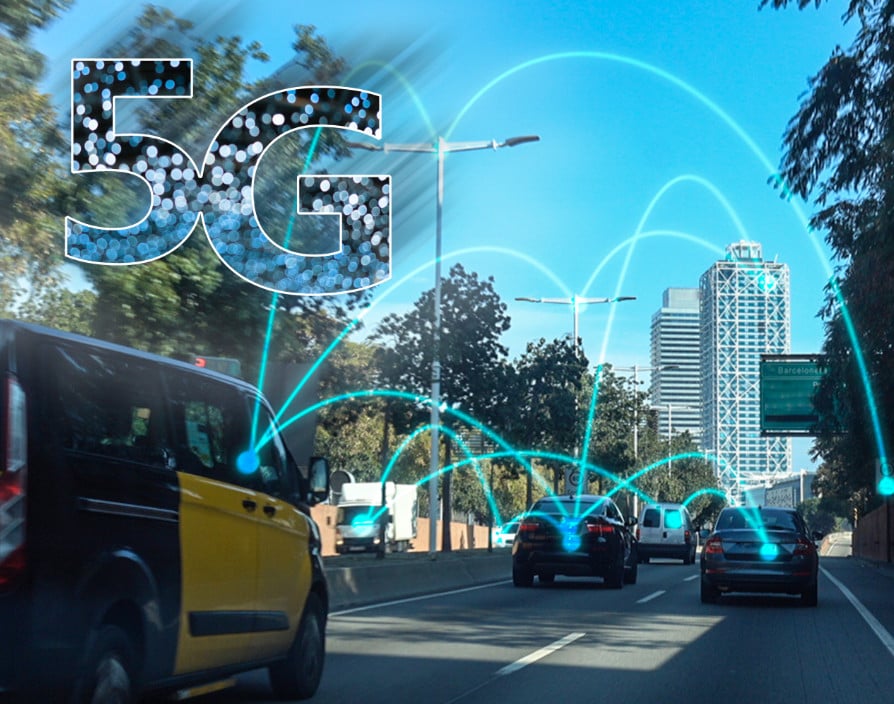5G has yet to take the world by storm. However, the lockdown is igniting a passion for remote working that will make it crucial for the future of work.
5G in the UK has not had the easiest of starts. First it was enveloped in the political drama over Huawei’s role in the network. Then activists set 5G masts on fire due to false conspiracy theories that it spread the coronavirus. However, initial post-lockdown demand for 5G suggests that UK businesses may be starting to fall in love with the network, mostly thanks to the large-scale adoption of home working by millions of people due to the lockdown and social distancing.
Falling in love with working from home
Of course, the pandemic has shown that 5G is not strictly necessary to do the basics. At the beginning of the lockdown, experts warned that the additional demand for bandwidth due to the huge numbers that would start remote working could overburden the UK’s consumer broadband infrastructure. Yet as 8.7 million extra workers began to tap away on laptops and business mobiles in their living rooms and kitchens during the day for the first time, the network coped better than most had predicted. Despite a rise in weekday daytime traffic of up to 60% when restrictions came in, download speeds fell by just 2% on average, according to Ofcom.
In fact, it coped well enough that many businesses have done a U-turn on their home working policies. The stigma associated with working from home prior to COVID-19 has disappeared, explains Stanford Economics Professor Nicholas Bloom, whose research has focused on productivity and remote working. Pre-Coronavirus, his work suggested that working from home can increase performance outputs by 13 per cent and improve staff retention rates by 50 per cent. Companies in the UK like Slack and Facebook have already made working from home permanent, and because of the lockdown, businesses are starting to get the message, explains Bloom: A number of corporations are developing plans for more work-from-home options beyond the pandemic … the share of working days spent at home is expected to increase fourfold from pre-COVID levels, from 5 percent to 20 percent.
But the difference between surviving weeks of lockdown and finding a viable route forward in our ‘new normal’ are immensely different tasks. Rather than hinder its progress, the demand for home working has spurred a need for better long-term home working solutions, which could unlock a new window of opportunity for 5G in the UK.
Growing business demand for 5G
Early indicators suggest that this is already starting to translate on the ground. Searches for 5G spiked by 230% between February and April (the highest for at least two years) according to Google’s Keyword Planner. We have also seen sales of 5G devices creep up over the last quarter.
The first and most significant reason for this is that the consumer broadband network was never intended for home working en masse. Although it has coped, there have been challenges. Looking at Google’s search data, queries about ‘poor broadband speeds’ increased by approximately 92 per cent between February and April. This indicates that consumer broadband may be less well equipped than business broadband for doing ‘heavy-lifting’ tasks to begin with. A recent study of 1,000 UK workers operating from home because of the Coronavirus also found that 21 per cent have struggled with their broadband connection.
Standards are also changing. When the lockdown was first announced, businesses went into overdrive to set up systems that would allow them to continue operating. Good enough was good enough in a crisis. But as the business community tries to stave off the impact of a possible recession, they will need a network that facilitates productivity just as well, if not better, than it did at the office. Previously, only about 5% of the UK’s workforce operated remotely. The difference now is that millions more are experiencing the small but not insignificant daily communications and tech challenges that those who have always worked remotely know all too well.
Another reason is that working from home and flexible working arrangements are likely to remain both necessary and desirable for some time. A necessity because a huge proportion of people have yet to contract the virus ‘ only around 7% of the UK population were thought to have had the virus in late May, and the experts warn that a vaccine, which would be a game changer, is unlikely until at least mid-2021. Until this time, many employees will also be reluctant to return to the office. Being forced to work from home has also opened many eyes to its benefits, with 82 per cent of businesses attempting to maintain a model of remote working that works for them in the foreseeable future.
What 5G brings to the table
Vodafone forecasts that 5G will give the UK economy a £150 billion boost over the next decade ‘ in large part due to its potential to increase productivity and create efficient work processes. In practical terms today, that translates into super-fast download speeds of just a few seconds and greatly improved latency and accessibility – all of which matter more than most people think when it comes to remote working. Whether an employee is sharing a home Wi-Fi hub, searching for a signal to tether off 4G or sourcing a third-party connection when on the go, connectivity is still one of the biggest challenges of remote working. So 5G is especially necessary as employers increasingly ask their staff to deal with big data or files including imagery and video.
Once the network has fully rolled out, 5G also promises to make easy work of tasks that now still feel a little clumsy with a standard connection ‘ such as factory inspections, medical consultations, or creative brainstorming. The improved speed offered by 5G makes all this viable from your living room, and its increased latency also means that devices can operate more effectively in real time.
However, 5G is also the pathway to a more advanced future, enabling businesses to grow as the economy develops in the years to come. Advances in technology, engineering and science, mean the workplace of today will look dramatically different in 2040, claims Nick Colosimo, a principal technologist at BAE Systems. Colosimo predicts that the top jobs in two decades’ time will require data-hungry emerging technologies such as Virtual Reality, Artificial Intelligence and Robotics.
Speeding up 5G’s natural evolution
History tells us that 5G is very likely to do well in the UK but it will be more evolution than revolution. 4G is already enabling us to work flexibly and fairly quickly but, just as we began to get frustrated with speeds and features on 3G in the noughties, we will start to demand the responsiveness and applications 5G offers as it becomes more widely available.
Until the coronavirus, 4G and home Wi-Fi has been largely seen as ‘good enough’ by businesses and consumers alike. While many companies see the benefits of 5G, 51 per cent said that they were overhyped in a study of 1,068 SMEs for Onecom last year. However, the current drive towards long term home working, sped up by the coronavirus, now has the same potential to enable faster adoption of 5G for businesses. The increased need for video calling due to social distancing may also drive demand in the consumer sector too.
“
Share via:


















































